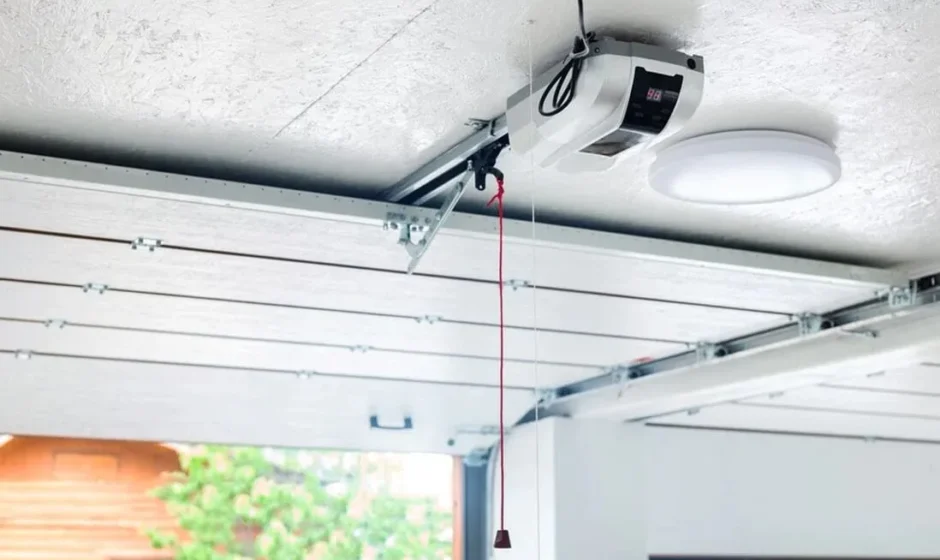When it comes to garage door openers, selecting the right remote frequency is a crucial decision that can impact the security and functionality of your garage. Remote frequency refers to the radio signal used to communicate between your garage door opener and its remote control devices. There are two main frequency options: 315 MHz and 390 MHz. In this article, we will explore the differences between these frequencies and provide guidance on how to choose the right one for your garage door opener.
Understanding Garage Door Opener Remote Frequencies
Before delving into the specifics of 315 MHz and 390 MHz frequencies, it’s essential to understand the basics of how garage door opener remote systems work. Garage door openers rely on radio signals to transmit commands between the remote control device (such as a handheld transmitter or keypad) and the garage door opener itself.
These radio signals are sent on a specific frequency, which is essentially a unique channel that allows the remote control to communicate with the garage door opener without interference from other devices. Selecting the right frequency is crucial to ensure the security and reliability of your garage door opener system.
315 MHz Remote Frequency
The 315 MHz frequency has been a standard choice for garage door openers for many years. Here are some key characteristics of the 315 MHz remote frequency:
- Longevity: 315 MHz has a long history of use in the garage door opener industry and has proven to be reliable over time.
- Interference Resistance: This frequency is less susceptible to interference from other electronic devices, making it a dependable choice in areas with high radio frequency activity.
- Security: While no frequency is entirely immune to hacking or code-grabbing attempts, 315 MHz systems often include security features like rolling code technology, which changes the code with each use to enhance security.
- Availability: Garage door opener systems using 315 MHz remotes are widely available, and replacement remotes are easy to find.
390 MHz Remote Frequency
The 390 MHz remote frequency is another popular option for garage door openers, and it offers its own set of advantages:
- Enhanced Range: 390 MHz remotes typically offer a slightly longer range compared to their 315 MHz counterparts. This can be beneficial if you need to control your garage door from a greater distance.
- Compatibility: 390 MHz garage door openers are compatible with a wide range of remote control devices and keypads, making it convenient to find replacements or additional accessories.
- Stable Performance: The 390 MHz frequency provides stable and consistent performance in most environments.
- Security Features: Like 315 MHz systems, 390 MHz garage door openers often include rolling code technology for added security.
Choosing the Right Frequency for Your Garage Door Opener
Now that you understand the differences between 315 MHz and 390 MHz garage door opener remote frequencies, let’s explore how to choose the right one for your specific needs:
1. Check Your Existing System:
The first step is to determine the frequency of your current garage door opener system. You can find this information in your garage door opener’s user manual or by checking the receiver unit on the opener itself. If you have an older system, it’s more likely to use the 315 MHz frequency. Newer models may use either frequency, so it’s essential to verify.
2. Consider Your Location:
Your geographic location can play a role in your choice of frequency. While both 315 MHz and 390 MHz frequencies offer good interference resistance, it’s a good idea to assess the radio frequency environment in your area. If you live in an area with a high concentration of electronic devices or radio signals, the 390 MHz frequency’s slightly enhanced range and performance may be advantageous.
3. Evaluate Your Range Needs:
The range at which you need to operate your garage door opener can also influence your frequency choice. If you have a long driveway or often need to open your garage door from a distance, the 390 MHz frequency’s extended range may be a valuable feature.
4. Compatibility with Accessories:
Consider any additional garage door opener accessories you currently use or plan to add in the future. Make sure that the frequency you choose is compatible with these accessories. This includes remote control transmitters, wireless keypads, and other devices you may use to operate your garage door.
5. Security Features:
Both 315 MHz and 390 MHz frequencies can offer strong security features like rolling code technology. However, it’s essential to ensure that your specific garage door opener model includes these security measures. Check the manufacturer’s documentation or consult with a professional installer if you have any doubts about your system’s security.
6. Availability of Replacement Parts:
Consider the availability of replacement remote controls and other parts for your chosen frequency. While both 315 MHz and 390 MHz remotes are readily available, it’s wise to ensure that you can easily obtain replacement components when needed.
7. Future-Proofing:
When selecting a garage door opener frequency, think about your long-term plans. If you intend to keep your garage door opener for many years, consider which frequency is more likely to remain compatible with future technologies and accessories.
Final Thoughts
Choosing the right garage door opener remote frequency is an important decision that can affect the performance, security, and convenience of your garage door opener system. Whether you opt for the tried-and-true 315 MHz frequency or the slightly extended range of the 390 MHz frequency, it’s essential to ensure that your choice aligns with your specific needs and circumstances.
If you’re unsure about which frequency is best for your garage door opener or if you’re considering upgrading your system, consult with a professional garage door installer. They can assess your situation, recommend the most suitable frequency, and ensure that your garage door opener operates seamlessly for years to come.



